 The Cineaste A. Van Jordan
The Cineaste A. Van Jordan  for my family in our love for film Nothing is lost, nothing wholly passes away, for in some way or another everything is perpetuated; and everything, after passing through time, returns to eternity. Miguel de Unamuno, Tragic Sense of Life CONTENTS (Michigan Theater, Ann Arbor, September 14, 2010) Listening to the organist play feels like eavesdropping inside the mind of a giant, a bipolar giant whose emotions are so fragile I want to climb up her arm to lay my hand on her shoulder. The screen has yet to capture the first gray glimpse of skyline. Music envelops the theater, enclosing the city in a throat filled with indifference, a city under a chiaroscuro of sunlight and shadow imagined by those working in the depths of the metropolis a sort of giant, too, with some real issues to work out. I remember watching, as a child in downtown Akron, Wild Oscar play the organ, ascending from beneath the stage at the Loews Theater, long before it was renamed the Civic Theatre, and even longer before it needed restoring to save its life.
for my family in our love for film Nothing is lost, nothing wholly passes away, for in some way or another everything is perpetuated; and everything, after passing through time, returns to eternity. Miguel de Unamuno, Tragic Sense of Life CONTENTS (Michigan Theater, Ann Arbor, September 14, 2010) Listening to the organist play feels like eavesdropping inside the mind of a giant, a bipolar giant whose emotions are so fragile I want to climb up her arm to lay my hand on her shoulder. The screen has yet to capture the first gray glimpse of skyline. Music envelops the theater, enclosing the city in a throat filled with indifference, a city under a chiaroscuro of sunlight and shadow imagined by those working in the depths of the metropolis a sort of giant, too, with some real issues to work out. I remember watching, as a child in downtown Akron, Wild Oscar play the organ, ascending from beneath the stage at the Loews Theater, long before it was renamed the Civic Theatre, and even longer before it needed restoring to save its life.
Wild Oscar would play before the feature or during the silent Krazy Kat shorts preceding the main event. Going to the movies seemed monumental: live music, opening acts, serpentine lines around the block. When Oscar played, I wonder, now, if he was happy or was he beneath the stage the whole time toiling like the workers in the film tonight, preserving a magic moviegoers still believe in, the way voters and lovers do not. Like many children, I believed I would do something with my potential once I simply grew up. Like many adults, I stayed a child; potential hanging around like a shadow. But every now and then, like tonight, I catch up with my shadow self, and show up in a theater to see a restored edition of an old film about workers holed up in a factory for too many hours and lovers separated, like most lovers, by their ideas.
One worker steps off line, reprieved by a brother worker, and suddenly the sky appears, and the whole rectilinear contraptionand I mean their lives, not just the plant comes tumbling down, an arcade of beliefs in ruins. I wonder what it all means to this audience, whose laughter rings a bit condescending in the cued moments of melodrama. Its so easy to laugh at the banana peels laid before the lives of others. Sad to see the young act too old to feel nave, no suspension of disbelief. Not me. Movies provide my last safe playground.
Tonight, for instance, when the organist descends to play, and the lights expire, and the projection whirrs to action, Im as excited as a boy again. When the organ ascends, what am I but as dazed as the workers climbing from the depths of the metropolisa little disappointed, filled with questions, wondering how will I go on with my days work outside in all that natural light? (Jim Jarmusch, 1984) Arriving in the New World, I discover when you land someplace new, everything feels the same. Ive kept in touch with my American family through letters written in Hungarian. Meeting them, speaking English, holds home at arms length: My cousins one-room apartment shows me all I need to know of Manhattan, so I seek the shaded skyline of Cleveland as a gift to myself. My cousin offers me a dress as a token of acceptance, but its ugly, and I let him know I appreciate his ugly offering, but, once out of sight, I pitch it in the trash around the cornermy last act of love in the city. Why do they call these meals TV dinners, when we eat them at the kitchen table? The road ahead will offer more questions as answers.
I welcome the Midwest smog as clarity of where I am, for once. Snow makes Lake Erie look like a painting. What I mean to say is how it looks matters less than how I feel standing before it. My Aunt Lotte worries about my hanging with bad boys, meaning her son and his friend. Why not worry about them hanging with me and my man, Screamin Jay Hawkins, whos a real bad dude, not to be messed with? I can handle myself any place from Cleveland to Cape Canaveral, from Budapest to the Lower East Side, so back off and let me work a spell on you. Ive been headed toward paradise my whole life.
Ive been on this journey meeting strangers who mistake me for someone they owe, and I accept their offerings with wit and suspicion. What else does a traveler need to survive? Whatever comes my way, I share with those around me, those people calling themselves friends, cousins. I see they need a guide on their journey, someone to push them out of their homes onto a plane, a beach, a road leading nowhere holding promisebut promising, nonetheless a place they always said was nice, and promised me Id love, though theyve never been there themselves. (Alan Resnais, 1961) A place, though visible, is like a ghost of memories. Even memories one forgets linger in the space in which they occurred. Here within the expanse of vaulted ceilings, doorways leading to more doors, hallways leading to more halls, the faintest recollections absorb over time; no act will wholly evanesce.
Wander over the carpets and marble floors, and the echoes of bygone eras endure, wafting through corridors like a perfume pulsing on a womans neck. What should one make of what happens or doesnt through a night between lovers? And if the space awakens in a man or a woman some thing they would not find the inner charge to commit in their own bedroom, should they forget? Embrace this longing? This couple, lets say, met last summer at a chteau soire, and they made love or they thought about making love to each other. If they did make love, well, theyre adults, theyll turn to each other in memory, forever waiting there for each other; they will always have this place and time. If one evening this couple, which is not really a couple, lies together in one room while their lovers wait upstairs or at home, if they both thought about making love to each other, while glancing across a crowded room... Well, why would anyone try to forget that? Again and again, the moment is captured in ones mind, but try to prove it happened, and details retreat into darkness. Again and again, footsteps get absorbed by carpets, so thick, so heavy...
Oh, how moments call, but better senses abate any emerging pleasure. One may even convince the body, against the will, that such moments were made to linger, only awakened by the promise of possibility. (Michael Powell, Emeric Pressburger, 1948) Through the silence, the shoes are a night without a body to share a bed with, while a storm builds outside the bedroom window. Naked is she without her red shoes; red is the sky in the dream of the shoes at her feet. A woman is a woman without red shoes laced on her arched feet, but the shoes dance whether she laces them up or not. The woman who is not a dancer will dance once she laces the shoes on her arched feet, once her feet are arched in the shoes, red will be the color of her toenails and the soles of her feet.
But what of her soul? That soul will be laced up, too, and the dance will be a dance of a night in bed with a lover through a storm. The need to dance is the same as the need to live, without questions, without knowing the next step. The need takes the lead in the dance to the next stage, to the next lover until the dance is all she knows, all she needs. Yes, the shoes lead to a door inside her; the door opens a room she didnt know existed. Once inside, she dances the dance of no return, a threat she refuses to heed, a space she must explore, closing the door behind her, on the woman she believed she was before the shoes kept beat to a tune to which she hangs on for life, barely keeping up. W. W.
Next page
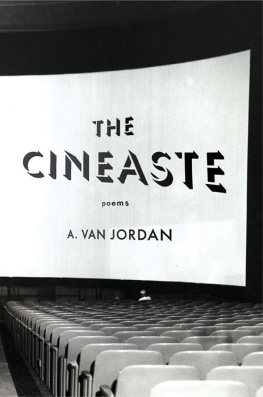





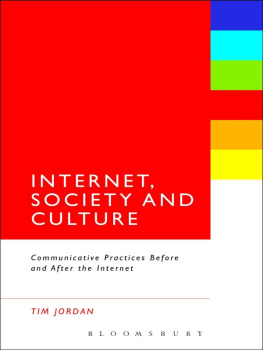

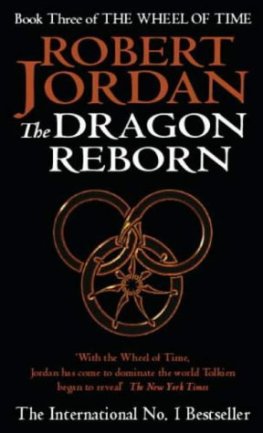
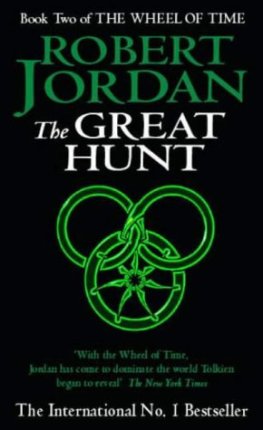
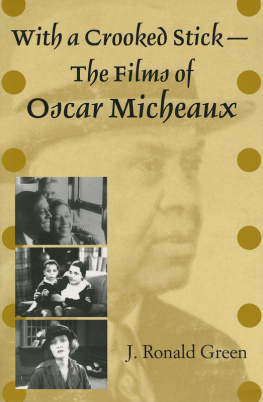
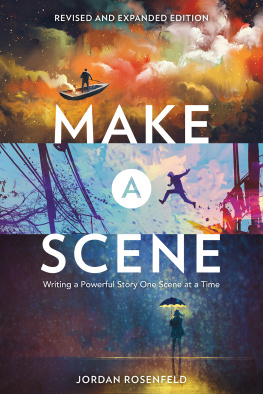

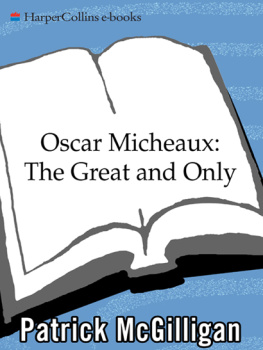

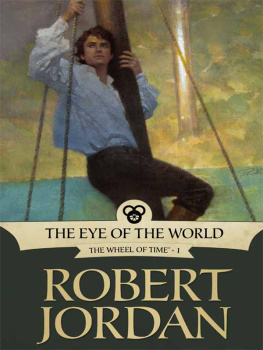
 The Cineaste A. Van Jordan
The Cineaste A. Van Jordan  for my family in our love for film Nothing is lost, nothing wholly passes away, for in some way or another everything is perpetuated; and everything, after passing through time, returns to eternity. Miguel de Unamuno, Tragic Sense of Life CONTENTS (Michigan Theater, Ann Arbor, September 14, 2010) Listening to the organist play feels like eavesdropping inside the mind of a giant, a bipolar giant whose emotions are so fragile I want to climb up her arm to lay my hand on her shoulder. The screen has yet to capture the first gray glimpse of skyline. Music envelops the theater, enclosing the city in a throat filled with indifference, a city under a chiaroscuro of sunlight and shadow imagined by those working in the depths of the metropolis a sort of giant, too, with some real issues to work out. I remember watching, as a child in downtown Akron, Wild Oscar play the organ, ascending from beneath the stage at the Loews Theater, long before it was renamed the Civic Theatre, and even longer before it needed restoring to save its life.
for my family in our love for film Nothing is lost, nothing wholly passes away, for in some way or another everything is perpetuated; and everything, after passing through time, returns to eternity. Miguel de Unamuno, Tragic Sense of Life CONTENTS (Michigan Theater, Ann Arbor, September 14, 2010) Listening to the organist play feels like eavesdropping inside the mind of a giant, a bipolar giant whose emotions are so fragile I want to climb up her arm to lay my hand on her shoulder. The screen has yet to capture the first gray glimpse of skyline. Music envelops the theater, enclosing the city in a throat filled with indifference, a city under a chiaroscuro of sunlight and shadow imagined by those working in the depths of the metropolis a sort of giant, too, with some real issues to work out. I remember watching, as a child in downtown Akron, Wild Oscar play the organ, ascending from beneath the stage at the Loews Theater, long before it was renamed the Civic Theatre, and even longer before it needed restoring to save its life.